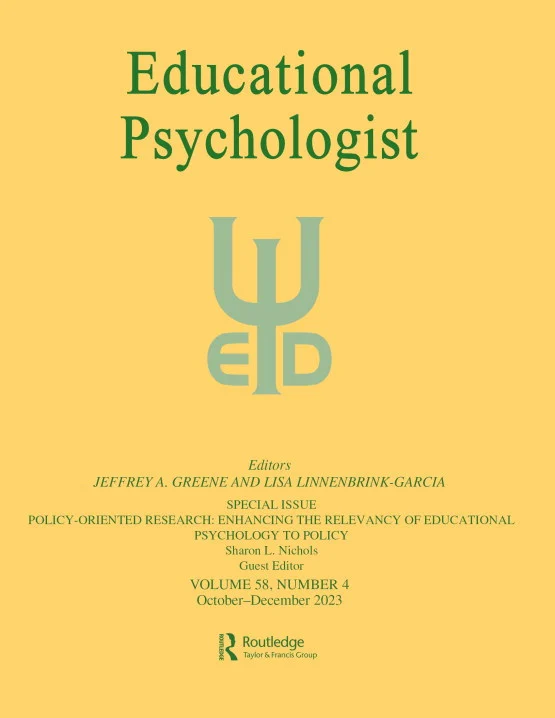The Multidimensional Knowledge in Text Comprehension framework
IF 11.4
1区 心理学
Q1 EDUCATION & EDUCATIONAL RESEARCH
引用次数: 55
Abstract
Abstract Prior knowledge is one of the strongest contributors to comprehension, but there is little specificity about different aspects of prior knowledge and how they impact comprehension. This article introduces the Multidimensional Knowledge in Text Comprehension framework, which conceptualizes prior knowledge along four intersecting dimensions: amount, accuracy, specificity, and coherence. Amount refers to how many relevant concepts the reader knows. Accuracy refers to the extent to which the reader’s knowledge is correct. Specificity refers the degree to which the knowledge is related to information in the target text. Coherence refers to the interconnectedness of prior knowledge. Conceptualizing prior content knowledge along these dimensions deepens understanding of the construct and lends to more specific predictions about how learners process information. Considering knowledge across multiple dimensions is crucially important to the development and selection of prior knowledge assessments and, in turn, educators’ ability to capitalize on learners’ strengths across various comprehension tasks.文本理解框架中的多维知识
摘要先验知识是促进理解的最重要因素之一,但关于先验知识的不同方面及其对理解的影响却缺乏特异性。本文介绍了文本理解中的多维知识框架,该框架从四个相交的维度对先验知识进行了概念化:数量、准确性、特异性和连贯性。量是指读者知道多少相关概念。准确性是指读者的知识正确的程度。专一性是指知识与目的语篇信息的关联程度。连贯性是指先验知识的相互联系。沿着这些维度概念化先前的内容知识可以加深对结构的理解,并有助于更具体地预测学习者如何处理信息。在多个维度上考虑知识对于先验知识评估的发展和选择至关重要,反过来,教育者利用学习者在各种理解任务中的优势的能力也至关重要。
本文章由计算机程序翻译,如有差异,请以英文原文为准。
求助全文
约1分钟内获得全文
求助全文
来源期刊

Educational Psychologist
Multiple-
CiteScore
19.10
自引率
3.40%
发文量
16
期刊介绍:
The Educational Psychologist is a scholarly journal dedicated to exploring the psychology of learning and instruction. Articles in this journal encompass a diverse range of perspectives, from examining psychological mechanisms to exploring social and societal phenomena related to learning and instruction. The journal publishes theoretical and conceptual articles, as well as reviews and meta-analyses, that significantly contribute to theory or advance the methods used to explore educational psychology. Emphasizing innovation and advancing understanding, the journal does not publish articles solely reporting the methods and results of empirical studies; instead, all submissions, including reviews and meta-analyses, must offer clear implications for advancing theory. In addition to regular articles, the journal features special issues that delve into important themes in educational psychology, along with focal articles accompanied by peer commentary.
 求助内容:
求助内容: 应助结果提醒方式:
应助结果提醒方式:


